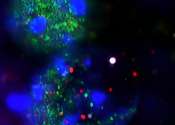Study supports hypothesis that mitochondrial dysregulation is a contributor to the development of schizophrenia
Researchers at Rutgers and Emory University are gaining insights into how schizophrenia develops by studying the strongest-known genetic risk factor.
Aug 16, 2023
1
642









